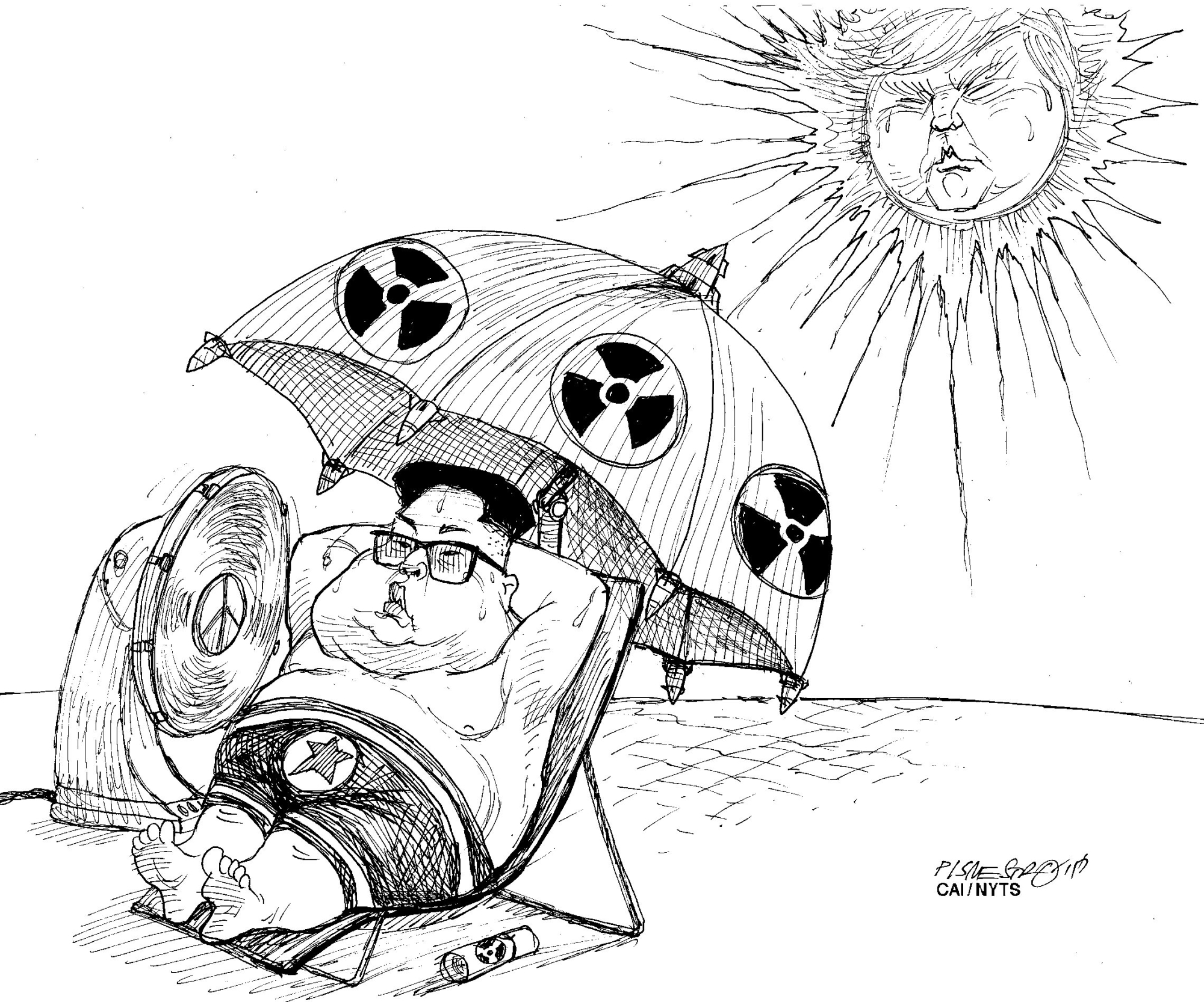Barely three months after they met in Singapore, U.S. President Donald Trump says he's happy to sit down again with North Korean dictator Kim Jong Un. One might justifiably ask why, given how little the North has conceded since their last tete-a-tete. There is room to make tangible progress, however, if the United States first rethinks its negotiating strategy.
Talks between the U.S. and North Korea have foundered in part because of a fundamental contradiction in world views. It's impossible for the U.S. to imagine establishing a peaceful, normal relationship with the North until Kim has completely and verifiably dismantled his nuclear program. For North Korea, it's impossible to imagine denuclearizing until its relationship with the U.S. is peaceful and normal. So long as these issues are linked, and so long as leaders in Washington and Pyongyang continue to cling to their particular understanding of how they're linked, even another Trump-Kim summit is likely to produce little.
Doing nothing isn't really an option, however. The U.S. can't simply console itself that its "maximum pressure" campaign continues to bottle up the North. Pressure to enforce sanctions, especially in China, has begun to wane. Meanwhile, South Korea seems to be racing ahead in its own peace talks, with the North hosting family reunions and Seoul boosting its inter-Korean economic cooperation budget to nearly $1 billion and seeking exemptions to international sanctions in order to engage Pyongyang. South Korean President Moon Jae-in is holding a three day summit with Kim in North Korea starting today and bringing along as many as 200 officials and businessmen.


















With your current subscription plan you can comment on stories. However, before writing your first comment, please create a display name in the Profile section of your subscriber account page.